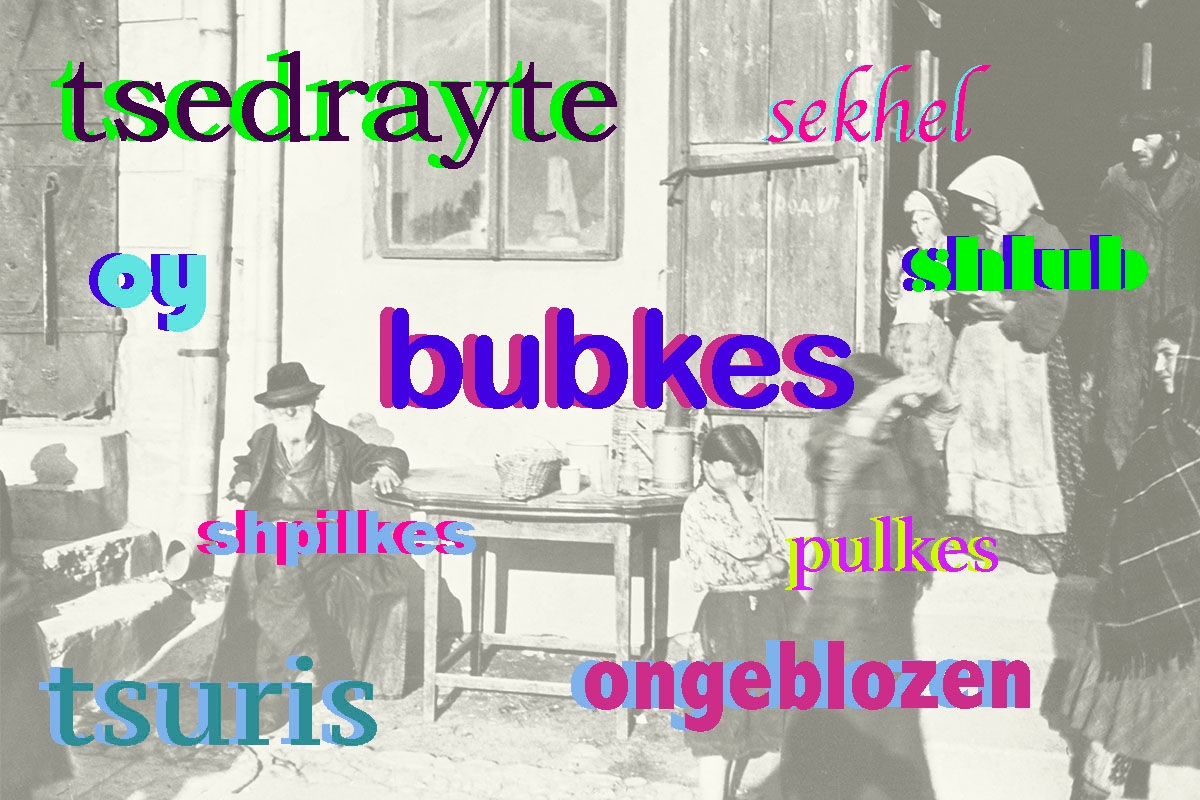The coronavirus, terrible in just about every way, has been very good for Yiddish.
Gay vays – go know, as they say — but the lockdown has meant record attendance for YIVO’s Uriel Weinreich Summer Program in the language. On Friday, 120 students will graduate from the course, a 60 percent increase from last year. The in-person, six-week, $2,400 program can be a heavy lift for prospective Yiddish speakers, especially if they don’t live in New York. When the program switched to Zoom, it opened up the opportunity for a brand-new cohort.
“It was a chance of lifetime for people who didn’t have to come to New York and spend money on renting a place, which can cost more than the registration for the program, or who couldn’t come for the whole summer,” said Dovid Braun, the summer program’s academic director. “They took advantage.”
The students and two dozen faculty have been meeting daily on Zoom – the first online foray in the program’s 53-year history. “It took a lot of creative planning on the fly,” said Ben Kaplan, YIVO’s director of education. “How do you make this as dynamic an in-person class, and still have the same standards? We had to function at a high level over Zoom.”
Enrollment is also way up for the Workers Circle’s online summer semester, which registered 305 students from 20 countries and 32 states — a 65 percent increase from last summer. The summer semester, 4-5 weeks long, included 25 classes at all levels, up from 18 last summer.
Starting August 16, Workers Circle will offer a three-day “Trip To Yiddishland” online with lectures, performances and classes.
YIVO’s Braun attributes the interest in Yiddish to a number of “microtrends,” from academics looking to polish a dissertation to performers preparing for a show to musicians hoping to adapt Yiddish poetry. Many come in search of family or religious roots, trying to connect with elderly relatives or dead ancestors through a language spoken by much of a population of Jews nearly eliminated during the Holocaust.
One YIVO student with a family connection is Brad Rothenberg, 35, whose great-great-grandfather on his mother’s side was the iconic Yiddish writer Sholem Aleichem; his great-grandfather, Ben Zion Goldberg, was a journalist for the Yiddish daily Der Tog who married Sholem Aleichem’s youngest daughter.
“Coming from a family that was so prominent, it was really important for me to continue that,” said Rothenberg, a New Yorker who runs a 3D-modeling company. “I’ve read translations of so many stories and I have heard from everybody in my family that ‘you have to read it in Yiddish, you have to read it in Yiddish.’ It’s much more important to read it in that language, rather than the translation.”
Rothenberg said he wouldn’t have been able to take time off for the full beginner’s course if not for the switch to digital. “As soon as they said it was going online I figured out how to get the time.” His staff knows he’s unavailable weekday mornings during class.
Rothenberg was especially taken with the breadth of ages and geographies in the classes. Students range in age from 16 to 84. According to YIVO, the summer’s cohort includes students from Belarus, China, Canada, Colombia, Germany, Greece, Israel, Italy, Japan, Poland, Russia, Ukraine, the United Kingdom and the United States.
Iryna Zrobok, 22, dials in from L’viv, Ukraine, where she is a university student majoring in German translation. She took her first Yiddish lesson two years ago “by accident,” she said – Zrobok is not Jewish, “but the more I learned Yiddish, the more I feel that Jewish culture belongs to this city and my country. Before the war, 30 percent of the people who lived in L’viv were Jewish, and so much was written about the city in Yiddish. I don’t believe we can really learn about our history without learning Jewish history, because it belongs to this place.”
Zrobok took the highest-level class this summer, and may switch to Jewish studies when she pursues her master’s degree.
“I’m so happy about my classmates,” she said of the YIVO program. “We were 16, and they were all such amazing people. Half of them are musicians, or people who do some serious music in academia. I’ve never had such an experience before with such talented and intelligent people around.”
The pandemic has also increased demand for YIVO’s other digital offerings, with some 14,000 people signing up for its series of take-at-your-own-pace online classes. That’s a boost for the 95-year-old Yiddish research institute, which back in January laid off four librarians after a $550,000 revenue shortfall in 2019. Kaplan said YIVO hasn’t had to cut staff as a result of the pandemic.
The institute has been rushing to digitize more and more of the 23 million documents in its collection, meeting demand from scholars and others unable to visit YIVO’s headquarters on 16th Street in Manhattan. Once the coronavirus is brought under control, YIVO looks forward to in-person classes, but digital will remain part of its strategy.
“For as long as the pandemic goes on,” said Kaplan, “we’ll continue to have more online offerings.”
The New York Jewish Week brings you the stories behind the headlines, keeping you connected to Jewish life in New York. Help sustain the reporting you trust by donating today.





